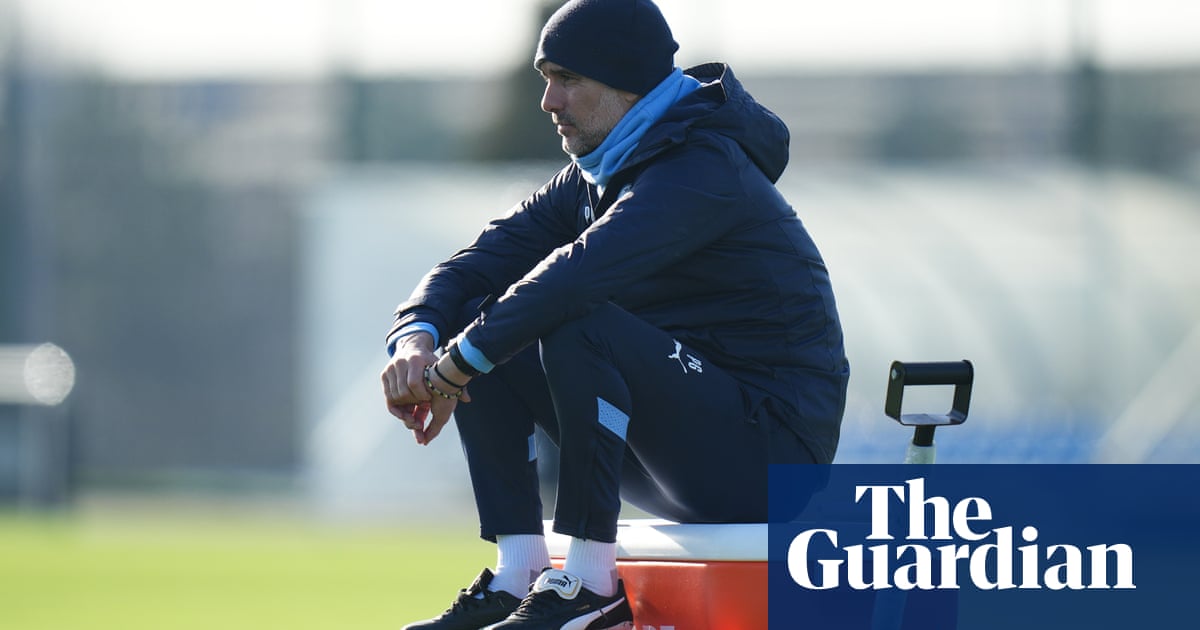
El Cap – The Boss – is an apt Catalan sobriquet for Pep Guardiola as this remarkable son of Spain’s north-eastern region ponders whether to end his era of ruthless Manchester City dominance. Six Premier League titles, two FA Cups, four League Cups, the Champions League, the Super Cup and the Club World Cup won in eight years. With English football’s second treble part of this, it is a record that may never be bested.
Next May, it could be over and the weekly spectacle of Guardiola’s City cuffing away their latest foe no more. Opponents and their fans will hope so, though he could decide to extend his tenure. Should I stay or should I go is a familiar dilemma for Guardiola, who left May’s 2-1 FA Cup final defeat by Manchester United unsure whether to allow his contract to expire and walk away next summer.
Coldly decisive in matters relating to his team, Guardiola is less so regarding his own future, which points to mixed feelings about when it may be right to depart a club rebuilt bespoke for him. With the hiring of Ferran Soriano as the chief executive and Txiki Begiristain as the director of football in September and October 2012, the chairman, Khaldoon al-Mubarak, was constructing a Barcelona-esque operation in east Manchester primed for Guardiola’s arrival. Soriano and Begiristain held similar positions at Guardiola’s beloved boyhood club during (in Begiristain’s case) or just before (Soriano) his 2008-12 span of success as head coach.
When he walked into City in summer 2016 the heavy lifting had been done by the Sheikh Mansour project: the Soriano-Begiristain axis was in place, Manchester United had been knocked off their perch as the best team in town, City were a destination club chosen by gilded talents including Sergio Agüero, David Silva and Kevin De Bruyne and title triumphs had been secured by Manuel Pellegrini and Roberto Mancini.
After a first trophyless season, the Guardiola hegemony began with City’s claiming of a record 100-point championship and the first League Cup win. The question of how long he would stay started too.
His inner circle believed, initially, the first three-year City contract would be his last. In May 2018 he signed on again, until 2021. In November 2020, a second extension took him until 2023. By now, Guardiola’s friends viewed these, almost certainly, as his exit terms. But no, in November of the 2022-23 treble campaign, he agreed to remain in situ until 2025.
Now, the word is Guardiola will make his latest decision between December and February. Mubarak’s ploy last time to convince Guardiola to stay was to sweet-talk him during the break for the Qatar 2022 World Cup. If he repeats this it may work once more or, maybe, Guardiola will be influenced by his energy levels and where the team are in the ninth midwinter slog under him; whether they are on course for a fifth consecutive league crown.
If Guardiola decides to leave, will this prompt a mass exodus? Could Begiristain and Soriano take their cue from him? De Bruyne’s contract also ends next summer, days after he turns 34. Kyle Walker, who is 34, has two years on his deal but a new manager would signal new ideas and trusted lieutenants, particularly those signed by Guardiola, may not wish to hang around.
Another of these, Bernardo Silva, could judge this window the time to depart if he senses Guardiola plans to go and a suitor is willing to pay his reported £50m release clause.
At play, here, too, is how there is nothing else to win at the club and scant else to achieve – unless a second treble or five/six/etc consecutive titles gets the juices flowing. So Guardiola leaving may also cause Erling Haaland, who Real Madrid admire, to ponder his future.
Guardiola, with his rigid zonal tactical strategy, the pretty attacking patterns these cause, keen eye for a transfer bargain, pithy media declarations, the absolute need to win and penchant for cigar-chomping when celebrating the latest championship triumph, will be missed when he says adéu.
A hole will be torn in the fabric of domestic football as we have come to know it. Some view Guardiola’s teams as functional – not their style but the relentlessness, the inevitability of the next City victory. But, as Guardiola likes to say (and he is correct), it is not easy. Far from it.
This has been his big trick, his own brand of greatness: making it appear a shoo-in that, emerging from the gloom and cold of an English winter, his team “will still be there”, as he says, competing for the title, the Champions League, with the Carabao Cup perhaps secured, and the FA Cup still alive.
Factor in the 100-plus Premier League charges against City for alleged financial wrongdoing – which the club deny and are due to be heard in the autumn though perhaps not resolved for some time – and the sense of a potential seismic change in Manchester’s blue zone is heightened.
If Guardiola does depart next summer it will be a searing migraine for the hierarchy to replace him. The club ethos, shaped by Mubarak, is that Guardiola can never be the most important employee because as the manager he upholds the style of play and City’s values but does not set them.
This may be true but Guardiola, as the pre-eminent manager of English football’s recent history, is a near impossible act to follow. Mikel Arteta and Vincent Kompany (perhaps) may be assessed when City require a successor.
The champions’ wish is not to have to do so in the coming season and that Guardiola, again, signs up. For the moment, though, we will have to wait – until he decides.












